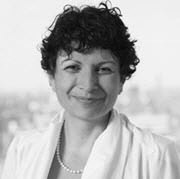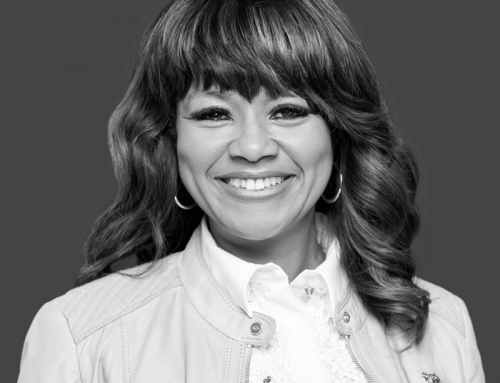
Fariba Anderson, ICD.D, Board Director shares her views on the role of the Digital Director.
How would you define the role of a Digital Director?
The critical element of a Digital Director is an individual that knows the blind spot that the corporation is stepping through all the time. It’s someone who has that kind of integrative critical thinking. Somebody who has technology; somebody who is a woman — we are innately wired to think that way– those are the people that have the building blocks. I think that a Digital Director is a person that can help their other colleagues at the Board realize that the world of digital is not any different than the world of bricks and mortar.
What are the key digital questions that Boards should be asking?
The fundamental problem at the Board level is that the responsibility for digital issues is abdicated to the CIO. There is a saying, “I succeeded in spite of IT [Information Technology] and I failed because of IT.” It’s an auto-pilot switch that everybody has. The same way that people blame government for all their problems, they blame IT for everything that doesn’t go right. IT is no different than any other business line or function. I will share with you an example. Does anybody in their right mind say, ‘I don’t know about this expense I incurred. Can somebody figure this out for me? It’s really Finance’s problem that I spent this money’. Does anybody talk like that? The language cannot be articulated because it would be idiotic. How many times do you go into a boardroom or to an Executive Committee meeting and basically people say, ‘I have this IT system, I don’t know why it happened. I spent $100 million.’ Whose fault is it that this system doesn’t work? Such failures have nothing to do with IT systems. It has to do with a mindset that says, “I can abdicate responsibility to IT and walk away.” Every major digital investment that fails is because the Board and the Executive have put the responsibility on the shoulders of one individual, the CIO. That’s the fundamental problem.
What is the role of the Digital Director in raising general Board awareness of digital issues facing the organization?
Find a specific issue on the Board agenda when an opportunity arises. Use the opportunity, very concisely, very briefly, to introduce the concept that there is an aspect here for which the Board might need some education. Then resort to independent people to get the education. I think that you have to find a specific scenario to raise the topic. Avoid the soapbox. When you identify the issue, find out specific details so that you can say, “Oh by the way, I saw this and I’m a bit concerned. What do other people think?” Then read what the other Board Members say in terms of body language and tone of voice.
What critical skills do you bring to the Board as a Digital Director?
What I bring at the Board level is that I know we all have a blind spot. I probe the blind spot. As I got recruited and joined the roster of Boards, I became known as a Director who will always be probing the blind spot – what we don’t know. Because in my view, it’s not what we know, it’s what we don’t know. By the time we realize that, it is too late. The market opportunity is gone.
What were key steps on your path to becoming a Digital Director?
In the very early years of my career I couldn’t speak much English, so I became an expert in body language. That’s how I survived. Now we know that people do 90% of their communication through body language as opposed to words. I didn’t know it then, but that’s how I got around.
I did really well in the field of computer science because I connected the dots that nobody else could connect. I became really good at solving business problems with technology early on in my career. As a matter of fact, I joined the executive ranks of industry in my early 30s. That’s unheard of!
When I was CIO, I realized that I was missing business principles. That’s when I invested in my MBA at Rotman. At that time Roger Martin was developing the whole principle of opposable mind and integrative thinking. I got exposed to his early thinking and I tell you, this man rewired my brain. I realized that what I was doing intuitively through the school of hard knocks was a strategy. This is how people get ahead. There are a lot of people doing this. Everybody can tap into what I sort of got into as a matter of survival. People, especially women, can do this. Not everybody needs to go get their MBA, although I highly recommend every woman does that. It might not be feasible for everyone, but everyone can pick up a copy of Roger Martin’s The Opposable Mind.
What advice do you have for women who have the skills and desire to find a role as a Digital Director?
There is one step. Networking. Literally, stop going to your professional vertical. You are not going to get anywhere through your vertical. It goes back to the principle of having a blind spot. If there are a bunch of people that are exactly like you, that talk like you, that walk like you, then you are in a blind state. Start networking with people that there is no way on the face of the planet you would come across in your normal day.





Leave A Comment